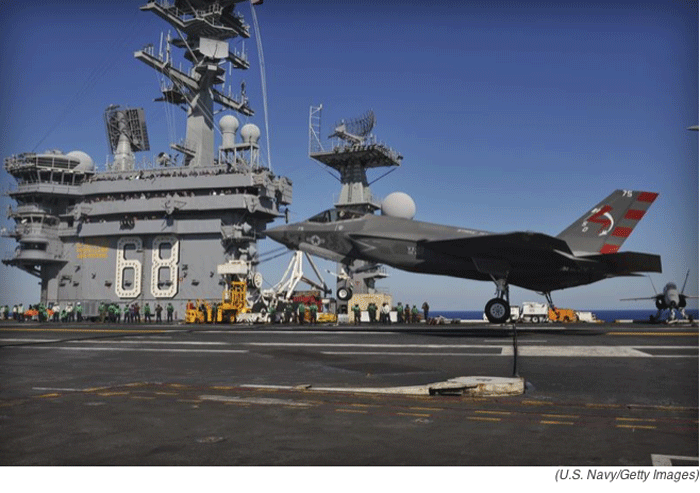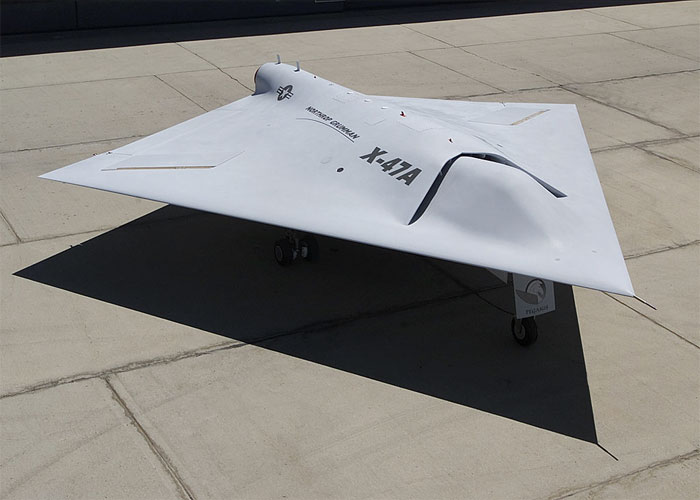.

The US Navy is giving up on fighter pilots and turning to drones
The US Navy is planning to stop using manned fighter jets in the coming years, according to Navy secretary Ray Mabus, turning instead to uncrewed aerial vehicles and drones to perform missions at sea, on land, and in the air. Speaking at the Sea-Air-Space 2015 conference on Wednesday, Mabus said that the currently used F-35 Lightning fighter "should be, and almost certainly will be, the last manned strike fighter aircraft the Department of the Navy will ever buy or fly."
By moving away from crewed aircraft, Mabus said the Navy could develop new fighting craft without needing to factor in the pilot's safety, a process that extended the time and cost of projects. "Removing a human from the machine can open up room to experiment with more risk, improve systems faster, and get them to the fleet quicker." To push the drone agenda, Mabus said he planned to create a new office for uncrewed technology in the Navy and appoint a deputy assistant director to champion the technology.
"REMOVING A HUMAN FROM THE MACHINE CAN OPEN UP ROOM TO EXPERIMENT."
In addition to drones, the Navy is adopting other recent technological advances for its activities. The force has experimented with using 3D printers to construct vital parts and medical equipment as part of a "print the fleet" program, but Mabus said the use of the techology is to be expanded, and could soon be used to print swarms of vehicles such as the Close-In Autonomous Disposable Aircraft (CICADA). Other advances could help the Navy prototype these new vehicles, using simulations and modelling programs to try new concepts without, as Mabus called it, "bending steel."
The Navy secretary said the tech allowed the force "to look at things like asymmetrical concepts without going through the tortuous, sometimes years-long acquisition process." Mabus blasted that process, which has taken the force over budget several times, saying that the Navy "cannot allow these overly complex, form-over-substance, often useless, and too often harmful, practices to slow or prevent development of some game changers, while simultaneously giving our potential adversaries the competitive advantage."
-

Quelle: THE VERGE
4878 Views
